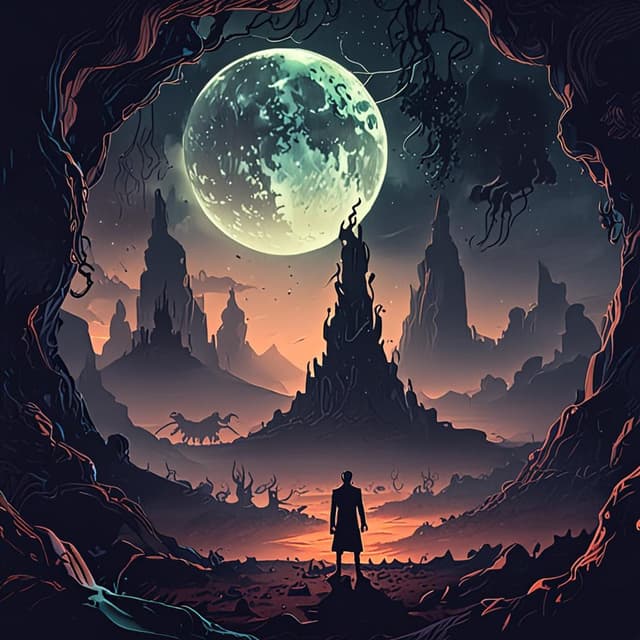
| Genre | |
| Origin | Works of American author H.P. Lovecraft |
| Themes | Cosmic horror • Existential dread • Limits of human knowledge |
| Influence | Subsequent generations of science fiction, fantasy, and horror writers |
| Influences | Eastern mythology • Eastern philosophy • Western occult traditions |
| Key Aspect | Bleak vision of humanity's insignificance in the face of unfathomable alien entities |
| Popularity | Cult following |
Lovecraftian horror is a subgenre of speculative fiction that explores themes of cosmic horror, existential dread, and the limits of human knowledge and understanding. Primarily associated with the writings of American author H.P. Lovecraft, the Lovecraftian mythos has had a significant influence on subsequent generations of science fiction, fantasy, and horror authors despite never achieving true mainstream popularity.
Lovecraft's literary works, produced from the 1920s to his death in 1937, were heavily inspired by a diverse range of sources including Western occultism, Hinduism, Buddhism, and East Asian mythology. He synthesized these influences into an overarching cosmology of ancient, indifferent alien entities and cosmic forces that dwarf and threaten the insignificant human race.
Key elements of the Lovecraftian mythos include:
Lovecraftian horror tends to focus on themes of humanity's insignificance, fragility, and limited perspective. Protagonists often find themselves confronted with knowledge or encounters that shatter their understanding of the world and place in the cosmos, leading to psychological breakdowns and existential despair.
Other common Lovecraftian motifs include:
While Lovecraft himself is considered the progenitor of the genre, many other authors have built upon and expanded the Lovecraftian mythos over the decades:
Some of the most acclaimed and influential Lovecraftian works include ''The Call of Cthulhu'', ''At the Mountains of Madness'', ''The Dunwich Horror'', and ''The Colour Out of Space''.
Lovecraft's own political views, which included xenophobia, racism, and anti-Semitism, have long been a source of controversy and debate among scholars and fans. While some argue these beliefs are inextricable from his fiction, others contend his cosmic horrors can be divorced from his personal biases.
In this alternate timeline, Lovecraft's worldview and its influence on the genre have taken on a more overtly political dimension. Lovecraftian authors often frame their stories as social and political commentaries, using the mythos as an allegory for the dangers of authoritarianism, xenophobia, scientific hubris, and humanity's self-destructive tendencies.
Additionally, Lovecraftian horror in this timeline draws more heavily from non-Western mythological sources, particularly from East Asia and the Middle East. This has allowed the genre to resonate with a more globally diverse audience and explore a wider range of cultural perspectives on the themes of cosmic insignificance and ontological horror.
While never achieving true mainstream popularity, Lovecraftian horror has cultivated a devoted cult following and has exerted a profound influence on subsequent generations of speculative fiction authors. Its bleak vision of humanity's vulnerability in the face of unknowable cosmic forces has become a cornerstone of modern horror, science fiction, and dark fantasy.
Adaptations of Lovecraft's work in film, television, and video games have contributed to the mythos' continued relevance, as have scholarly reappraisals that have reevaluated the genre's political and cultural significance. Lovecraftian themes and imagery have also seeped into visual art, music, and tabletop role-playing games.
Perhaps most importantly, the Lovecraftian tradition has provided a vehicle for writers to explore existential, scientific, and political anxieties in an imaginative yet unsettling context. As our understanding of the universe continues to expand and humanity's place within it becomes ever more uncertain, the appeal of Lovecraft's cosmic horrors seems unlikely to diminish anytime soon.